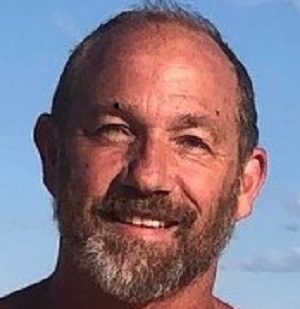
Craig Raymond
Indigenous Health Scholarship
University of New England, NSW
Masters of Clinical Psychology
Scholarship Awarded 2024
Sponsored by:
Rotary Club of Orange
Student Profile
I am a Proud Wiradjuri Man descendant from my mother’s maternal line from the Forbes area of NSW. I currently live on Gadigal Country and continue connections with mob, for example, being an assisted coach to the Waterloo U13 Rugby League side that played in the 2023 Koori Knock and my son is a proud member of the Waverley College Walawaani Indigenous cultural group and player in the Koori Knock-out.
No member of my family has ever been to university so stepping into this field being nearly 50-years-of-age was very daunting. During my psychology studies in 2023 I was fortunate to be able to return to ancestorial Country, spending a week in Condobolin and meeting with many of my mob whilst discussing what services could help their community. Mental health services are very much in demand, as is research into issues impacting upon this community and many Indigenous communities, such as disproportionate Indigenous incarceration levels.
My thesis and literature review both explored this area and it an area I have a passion for. Personally, I love being a dad, enjoy my sports, especially rugby league, and am a volunteer in both rugby league and surf lifesaving.
How will I contribute to improving Indigenous health as a qualified medical practitioner or health worker?
Of all qualified psychologists those with an Indigenous identity comprise less than 1% and this percentage is even less with Clinical or PhD qualified psychologists. Research has showed that many therapies based on western research and delivered without cultural awareness have been ineffective in the treatment of Indigenous mental illness or the prevention of the same.
My goal either as a clinical psychologist (post 2025) or through further research/teaching/clinical work as a PhD qualified practitioner (post 2027) is to further the inclusion of culturally appropriate therapies to help address the disproportionate levels of mental illness within Indigenous communities. In addition, to be an advocate for social change in law reform and Indigenous incarceration.
When Indigenous people are assisted to become leaders in specific fields they become role models for others. Learned helplessness is a chronic barrier for many Indigenous people but having role models helps our mob break through this barrier and embrace the strengths that they, are their ancestors, have possessed throughout generations.
It is my hope that I can play a small part in increasing the percentage of Indigenous psychologists, increase the effectiveness of therapies delivered to Indigenous peoples, and to address the disproportionate incarceration levels that have been enduring since colonisation of Indigenous peoples.
Current Progressive Report
My clinical journey began in February 2024 when I commenced my Master of Clinical Psychology. This involved leaving family in Sydney and driving to Armidale where I was to reside on-campus for the year. This presented many challenges, financial, where the scholarship greatly assists, being away from family that included a young adolescent, and how others at university would accept me being an over 50-year-old Indigenous man.
The first half of 2024 was course work completed on campus, and this then moved to a hybrid model for the rest of the year (and continues throughout 2025). As I struggled with technology this was an additional challenge that was quite unique to me. However, I was also able to see my cultural training and experience, varied employment over 40-years, and life experience, would also be an amazing asset and one that would benefit my clients.
Placements are where we put our theory into practice and for the first time you actually start to identify as a psychologist, instead of a psychology student. This is where I am now, beginning 2025, and final year, still connecting all these aspects of training and life experience to develop my own style as a practicing psychologist. Additionally, the demands and pleasures of family life have to be interwoven within the high expectations of clinical placement and study load that is part of training as a clinical psychologist. Furthermore, this training has given rise to opportunities, such as parttime work within the Indigenous and psychology areas at the University of New England.
Currently, within placement, I see a range of different presentations from anxiety, substance abuse, trauma and varying disorders across the lifespan, both within and outside Indigenous populations and I find every interaction unique, worthwhile and satisfying. I have no doubt that my mid-life career change is the right one, that will benefit myself, my family, and the communities I will get to work within. I strive to make a specific impact within Indigenous populations both through clinical practice and future research that I plan to be within the field of bridging the gap in health care and related outcomes.